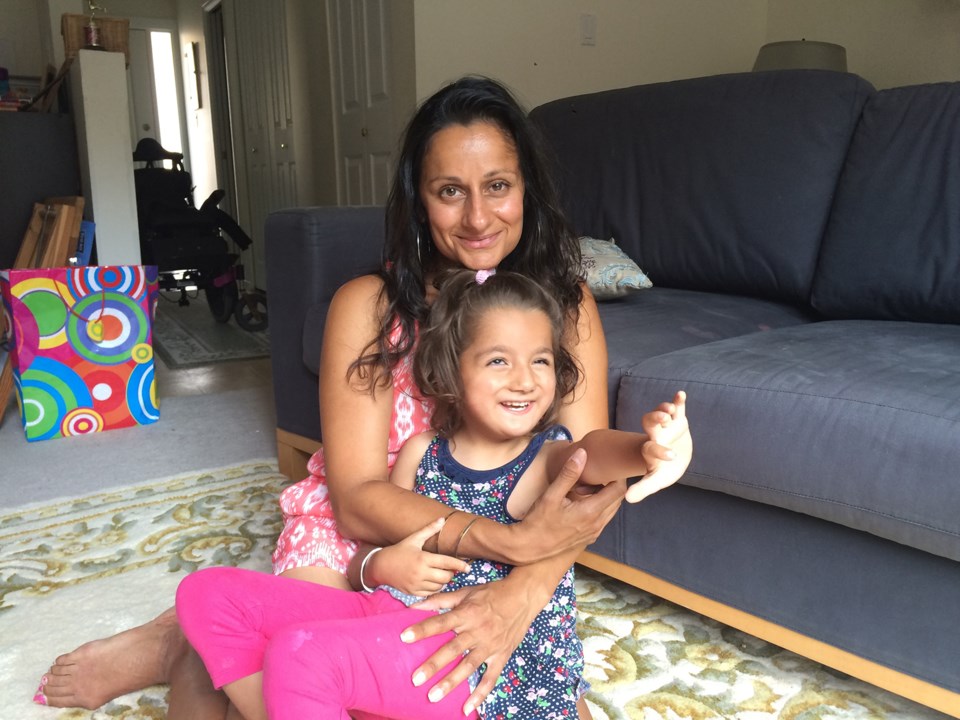Having disabilities is not a choice. Neither was it for Layla Belle McCay. Born with a cleft palate and two of her toes webbed, her parents knew something was wrong.
It turned out that Layla had delayed kubuki syndrome. Her mother, Jennifer Dalmir said it’s a “rare genetic switch” when Layla was still in her womb.
Sitting in her cozy home, watching Layla, now seven years old, giggle and lay on her back paddling her legs in the air, Dalmir recalled an old memory.
She said infant Layla and herself went to a Parent-Child Mother Goose program, especially for disabled children.
“Layla was in pink, all dressed up and I was sitting at one corner of the room holding her,” she said, adding when everyone came inside with their children, she was frightened because all the other infants looked different.
“I thought my child is normal, we do not belong here.” But she made herself stay and come to terms with the fear and uncertainty about having a child with special needs.
Dalmir and her husband decided to end their marriage. “Identifying our needs, the two of us decided to parent separately.”
Dalmir is now a single mother but still gets financial help from Layla’s dad. She is not only Layla’s mother but also her care provider.
“Her needs predominate my world. Most of my time, I stay home and look after her,” said Dalmir.
Layla’s brain did not develop properly when she was in the womb, hence her eyes cannot communicate properly with her brain, resulting in impaired vision. Also, Layla’s spinal muscles don’t work properly.
“Layla loves her sisters,” Dalmir said.
She is attracted to music and adores nature.
Her mother’s worries vanished during a camping trip when Layla adapted to the environment really well.
“Gone are the days when I used to match her to a development chart. For Layla, it’s like comparing apples to oranges. Her pace of developing is fascinating.”
Unable to speak out her frustration, Layla either hits or bites herself when she is hungry, tired or if she needs a diaper change, said Dalmir.
“It’s tricky to identify where pain is coming from. My biggest challenge is helping her find ways to best communicate with all of us,” said Dalmir.
She added that Layla is well-resourced by the ministry. She has a custom-built wheelchair, and a standing chair that helps her stand in different positions.
Now seven, she is still unable to walk, crawl, or sit on her own, but she does respond to people and sounds, said Dalmir. She engages in play with toys and uses the base of her hand to high five others, she added.
In September, little Layla will soon ride her wheelchair to school along with her sisters.
After graduating from the two-year Tree House program at Richmond Society for Community Living, Layla will have a part-time assistant who will work with her.
“Even the children have integrated her nicely,” said Dalmir. “I do think she will be able to speak, and walk and take a few steps.
“I am Layla’s legs. I am sure that she and I will be together for a long, long time.
“I am so well-supported, and I feel that I have a strong ground beneath my feet because I am accessing and utilizing these resources.”
Dalmir hopes other parents will feel comfortable asking questions as that can “bring down walls of fear and shame within society.”
She fundraises for the Easter Seal’s Drop Zone program, which has been an instrumental part of her support system.



